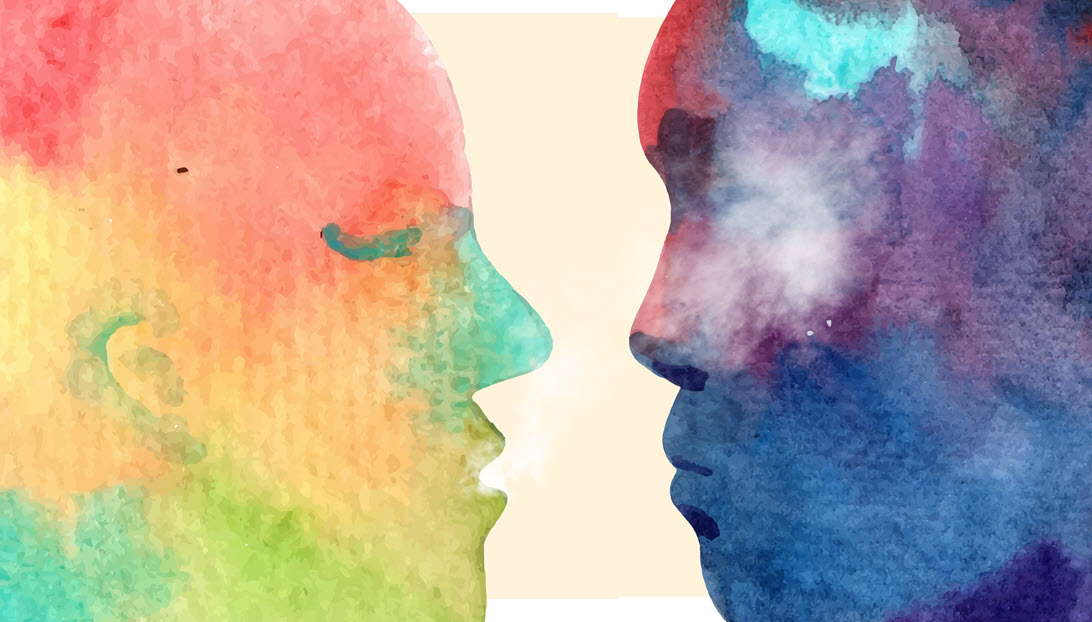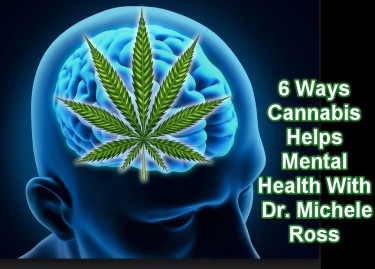
Smoking weed doesn’t increase hospitalizations for mental health problems, new studies say
Smoking weed does not increase your risk of being hospitalized for mental health issues
Mental health is one of the more complicated topics to talk about. Similar to taking care of the body, the mind is also something that we must take care of, otherwise we will suffer undesirable consequences. Still, mental health is a slippery subject that can only be understood due to the vastness of the ocean of ideas and emotions that people don’t even know where to begin.
Just as most people have some sort of minor illness in their bodies, most people also have mental health problems. No matter how healthy you think you are, there is always “something” wrong. They range from common problems like depression and anxiety to rarer problems like schizophrenia and bipolar disorder.
Some of them are inherited genetically, while others are picked up from our environment throughout our lives. It could be child abuse, trauma, head injuries, adult PTSD, and more. The list is endless, but the cures for these diseases are extremely controversial.
Some people claim that smoking weed increases your risk of being admitted to a mental institution; other people sit safely in their homes and smoke weed to avoid hospitalization, and cannabis relieves their stress and anxiety.
In today’s article, we take a closer look at a new study that debunks the notion that smoking cannabis increases the likelihood of being hospitalized for mental health issues.
We recently learned that depression is NOT a chemical imbalance as suggested by Big Pharma
It goes without saying that struggling with depression sucks, anyone who has experienced it or is currently experiencing it knows what I am talking about. It receives the award for the least “exciting” mental health topic.
For a long time, “scientists” told us that depression was an unfortunate chemical imbalance in the brain that needed medication, and a lot of people said, “Oh, that’s a shame, I guess I have to add a few more pills to my tally” based on Big Pharma’s profit margins have everyone fallen for this “hook, line and plumb line…” scam.
I’m not saying that taking antidepressants is bad. I’m just saying that a lot of people stopped taking them because after a few months of taking them, they felt faint, dizzy, and irritable.
So they didn’t actually bring balance back, they just helped out momentarily. That is exactly their purpose.
An article by Joanna Moncrieff, a longtime critic of the legitimacy of antidepressants, turned the tables. The study provides a summary of other reviews that strongly suggest that there is no evidence that depression is caused by a disruption in the brain’s serotonin system.
How does this relate to smoking weed? Well, many marijuana users claim that smoking weed has greatly helped their depression and anxiety when consumed in moderation. Other people disagree and say the opposite. However, this also means that cannabis may play an important role in depression, especially as we are now learning that depression is “more complicated” than just a brain imbalance.
Studies against cannabis often cite “mental health risks” when only a minimal portion of the population is affected.
Many people smoke weed, in fact marijuana use is on the rise, especially with legalization efforts and the astronomical benefits many people are not denying.
Smoking weed has gone from frowned upon to socially acceptable in recent years, and it’s no coincidence.
Although many scientists have claimed that marijuana use is detrimental to mental health, there is ample evidence that people who use marijuana and carry a specific variant of the AKT1 gene, which codes for an enzyme that controls dopamine signaling in the brain Striatum affected, sick are at increased risk of developing psychosis.
The striatum is an area of the brain that gets activated and flooded with dopamine when certain stimuli are present. One study found that people with this variant had a seven times higher risk of psychosis when they used marijuana daily compared to those who used it rarely or not at all.
Yes, marijuana can upset some people, but so can everything from food allergies to sun exposure and everything else in the world that is likely extremely harmful to a minority of people.
So if you smoke weed, if you have the rare AKT1 gene, you’re more likely to experience mental health issues from marijuana use than other weed lovers. That doesn’t mean that weed is bad for everyone, it just poses a higher risk to a minority of people on this earth, the only thing not disputed by scientists is clean fresh water, everything else has polar opposites. These studies need to be replicated to become fact, and as you’ll notice with most of these studies, they never use the word “cause” and usually justify “more research.”
The vast majority of users are fine, and this study supports that notion
Some Canadian researchers evaluated marijuana-related hospitalizations in over 23,000 licensed medical cannabis patients.
During her research with the patients, which lasted 240 days, there were reports of fourteen patients being hospitalized for cannabis toxicity issues and 26 being admitted for mental and behavioral problems.
“The results suggest that the incidence of cannabis intoxication or cannabis-related mental or behavioral disorders was low in patients eligible to use cannabis for medical care,” the authors concluded. “Our observation of low rates of ED visits and hospitalizations for cannabis intoxication and CUDs cannabis use disorders among this large cohort of medicinal cannabis users helps address concerns about increasing medicinal cannabis use.”
To put it in simple terms, scientists used to claim that most people who engage in weed would at some point trigger something in their mind that requires professional help, new studies are showing us through research that a very small percentage of people do is prone to problems related to marijuana use as long as it is in moderation.
Additionally, if you dig deeper into this, you’ll likely find that the vast majority of people who have suffered hospitalization have most likely already been diagnosed or had other variables at play.
Mental health will undergo a major revolution (the introduction of psychedelics) and as a result, the way we look at mental health will change
In recent years we have witnessed a psychedelic renaissance, and a growing body of evidence suggests that several psychedelic compounds have powerful therapeutic potential for a variety of mental illnesses.
Once dismissed as dangerous and of little therapeutic potential, psychedelics are gaining increasing mainstream acceptance. Research data continues to show that, overall, these drugs are not only safe, but mostly well tolerated.
There are endless stories of how people have taken acid, mushrooms or an ayahuasca ceremony and it has completely changed their lives. Some even claim that they no longer need their medication, while others claim to be completely free of depression and suicidal thoughts afterwards.
It’s important to note that psychedelics affect each person’s brain differently, so we’ll never really know what they do with 100% certainty, but all the evidence to date suggests that with the right and good intention, they cause breakthroughs and opens people up to what they really are and helps them to let go of what no longer serves them physically and mentally.
Former heavyweight boxing champion Mike Tyson says his experience with 5-MeO-DMT, also known as toad venom (one of the many psychedelics out there), changed the way his brain thinks for the better.
“The toad is a really interesting aspect of my whole being now,” he said on his podcast Hotboxin’ with Tyson. “It takes you to a place that takes you to another dimension. Since doing it, I’ve seen a wondrous change in me.” – Mike Tyson
When consumed mindfully and used for what it is, cannabis can provide significant relief and act as a bridge to well-being.
Smoking marijuana in moderation can completely change your life for the better, but don’t take it lightly, any substance you abuse in this physical realm will eventually backfire, that’s just a law of nature that we accept have to. While you most likely wouldn’t experience any extreme adverse events, some people may use cannabis as a crutch to avoid dealing with painful issues in their lives. This goes for going to the gym, eating, absolutely everything.
Smoking weed mindfully helps reduce anxiety, insomnia, chronic pain, nausea and a host of other ailments, the list is long and it will manifest differently for each person. I’ve long believed that cannabis was a “what-you-need-you-need” drug, adapting to the needs of the user.
It is also enjoyable and creates a real sense of well-being as it helps you relax your muscles and enhances some of the senses that make life more enjoyable even in the simplest things.
Whether you need something to help you manage your physical pain, anxiety, depression, or sleep, marijuana won’t let you down.
Many people consider weed to be a sacred plant given to us as a gift. It is a mild psychedelic that can help you dig deep into your soul and clear the fog of your perceived self. Marijuana is a spiritual enhancer or bridge for many people, it is no ordinary plant. Keep in mind how you use this wonderful plant, think of it as a gift and take it in moderation and you will reap the benefits mentioned above.
MENTAL HEALTH AND WEED, READ MORE…


Post a comment: